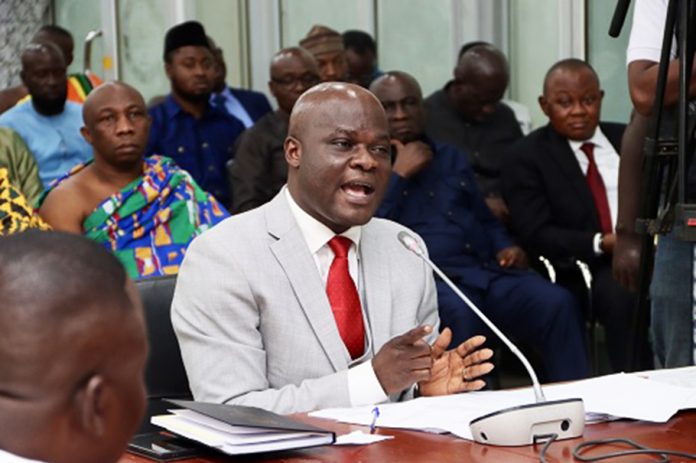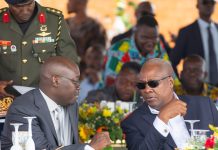Parliament has revisited the long-held discussion on the need to elect the various Metropolitan, Municipal and District Chief Executives (MMDCEs).
Members of Parliament across the aisle have always supported the move, leading to the attempt to implement same in 2019, by the erstwhile Akufo-Addo administration.
But for the last-minute misunderstanding on the modalities, which compelled the then president to pull the brakes on the subject, MMDCEs may have been elected by now, not appointed.
On the floor of Parliament on Thursday, May 29, 2025 both sides called for a workable framework towards the implementation of an elective system, which they believed would improve local governance.
They were contributing to a statement made by the MP for Ahafo Ano North, Eric Nana Agyemang, who argued that “this issue is long overdue.”
STRENGTH
The minority members made the point that the current government had the numbers to see to the implementation of the idea.
It must be noted that the ruling National Democratic Congress promised in its 2020 and 2024 manifesto to implement the policy.
The Minority Chief Whip, Frank Annoh-Dompreh, saw the proposal as a way to reform decades of an old system which he said often breeds unnecessary tension.
The Deputy Majority Chief Whip, Richard Acheampong, raised some concerns in the minds of some people that an opposition-elected DCE may frustrate the development agenda of the government.
Despite the concern, the House was hopeful that consensus could be reached to finally resolve the fear in the interest of national development.
AMENDMENT
The First Deputy Speaker, Bernard Ahiafor, who was in the Speaker’s chair, said the previous amendment was not enough because only Article 243 (1) was amended.
According to him, Article 243(3) must also be amended to take the power from the president to appoint DCEs.
“What came before us was to amend Article 243 (1). However, if you amend Article 243 (1) without amending Article 243 (3), there will be a challenge.
“Because as we speak, the constitutional imperative currently is that the MMDC must be nominated by the president and confirmed by the assembly members by a vote of two-thirds majority.
“Thereafter, the President will appoint them. The President then becomes the appointing authority. In view of that, Article 243 gives the power to the President to revoke the appointment of the district chief executive,” he said.
THE LAW
For better understanding, he referred members to Article 249, which states that subject to a procedure established by law, the mandate of a member of the District Assembly may be revoked by the electorate or the appointing authority.
His argument was that if the DCE is elected, the President should not have the power to remove that Chief Executive from office.
The view he expressed was that unless Article 243 of the 1992 Constitution is amended in whole, “we may not be solving the problem that we really want to solve. Honourable Members, we agree that they need to be elected,” he added.









